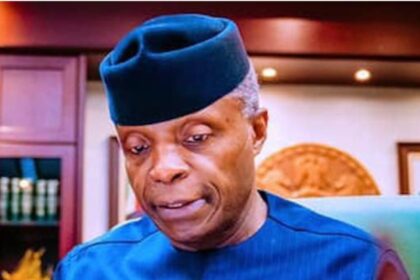Speaker Yakubu Dogara said the powers of the three arms of government were clearly spelt out in the constitution.
“From the very pedestrian interpretation of the functions of the three arms of government, one makes laws, the other executes the laws, the other interprets the law. So, a declaration as to which of the arms has the power and rights, in as much as it is related to the interpretation of the law, is the function of the judiciary and not of the executive.
“I don’t even want to believe that the acting president made that statement; I don’t want to believe that, sincerely speaking. Because when it comes to the issue of the budget, I think we better say this thing and make it very clear, so that our people will have a better understanding. When it comes to the budget, the power of the purse in a presidential system of government rests in the parliament.”
Accusing the Acting President of breaching his priviledge by his comments, Hon. Abubakar Lawal said the Constitution and the House Rules were clear on the procedure for passing the budget. “For someone to come out and say that we have no power, it’s a breach of our privilege,” he said.
Cheered on by his colleagues, Dogara, added: “The reason why the Constitution designers made it that way is because the executive is just one man, it is just the president. Every other person in the executive is acting on behalf of the president, so the relationship between the president and every other person there is that of servant and the master.
“It is only in the parliament where we have representatives of the people that there is equality and you can say your mind on any issue, you can bring matters of priority the way you like. The only time you can be cautioned is when you go outside the rules of debate but in the executive, it is not the case.
“Of recent, especially in this part of the world, people exercise executive functions on behalf of the president and want to be like experts in emotional intelligence. Even when the president has not said anything, people are trying to understand what the body language says so that they can tailor their arguments to suit the body language of the President, otherwise that might give them a sack.
“So, the entire architecture of presidential democracy is that it should run on the basis of consensus and convention between the parliament and the executive, and when there is disagreement between the executive and the parliament, the framers of the Constitution were smart enough to say look, our hope is in the representatives of the people and not in the executive, so the parliament can even go along.
“In the case of the budget, for instance, if it were the case that parliament disagrees with the executive on the budget, the worst the executive can do is to say they will not sign and after 30 days, if we can muster two-thirds, and it doesn’t have to be two-thirds of the entire membership, once the quorum is formed, two-third of the members sitting and voting, we can override the veto of the President and pass it into law.
“The only other option open to the executive is to say because we didn’t assent to this, this is the budget of the parliament, so we will not implement. But the point is that all of them, including us, are under an oath to faithfully execute the laws of this land. Then the question that will follow is if this is a law of the land and the answer is yes.
As men of honour, whether legislators or executive, we are bound by the oath of office to faithfully execute that law.
“In the case of the executive, if it is not done, all of us know the very consequences. I don’t want to call it by its name, we know the consequences. So in this kind of government, the winner is obvious. So I don’t think we should bother ourselves belabouring this issue.
“We all know where these powers are and under our watch, there is no way this House will be a rubberstamp of any executive .
Dogara said budgets are priorities of the government, but that as representatives of the people they can discern which are the priorities of the people as opposed to the priorities of the government.
“We can say even though these are priorities of the government, based on our job of representation, these are not the priorities of the people and we can refuse to fund them.”



